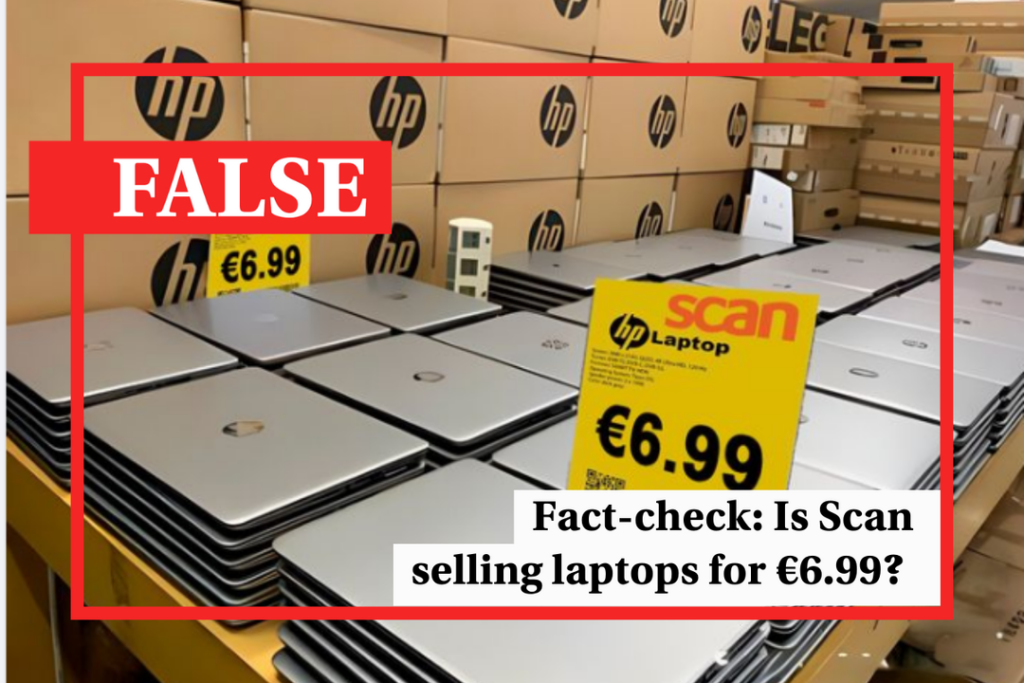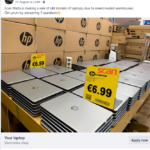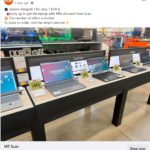Facebook was inundated in recent days with adverts showing local electronics shop Scan – one of the best-known shops of its kind in Malta – selling laptops, tablets and other devices for just a handful of euros.
But if a shop advertising a laptop for the price of a sandwich seems too good to be true, then it probably is.
Nevertheless, hundreds of local Facebook users were lured into advertising scams this week, many of them sharing the posts or asking whether the offer was genuine.
The most popular advert of the lot claimed to show Scan selling HP laptops for the measly price of €6.99.
But other adverts showed even better bargains, Lenovo laptops for just €1 (including free delivery), for instance.
The adverts were posted by an array of Facebook pages, some stealing Scan’s branding and name outright (one page was called “Scan MT”, another imaginatively went for “MT Scan”), while others adopted generic names such as “Your laptop”.
Reverse image searches on the pictures used in each advert show how the very same photos have been used in identical scams around the world, from the US to India, Nigeria and China.
Fake profiles and bot accounts chime in with comments beneath each advert, reassuring doubters that the adverts are genuine.
“I thought it would be a joke for this price, but I was wrong. The courier delivered it to me today,” one fake profile says, posting a photo of the laptop they claim to have received.
Some comments are even more insidious. “I contacted ScanMalta and received a reply that this offer is valid only online. I have already paid and received an order confirmation, I am waiting for delivery,” another says, later going on to update their post to announce that their laptop was delivered.
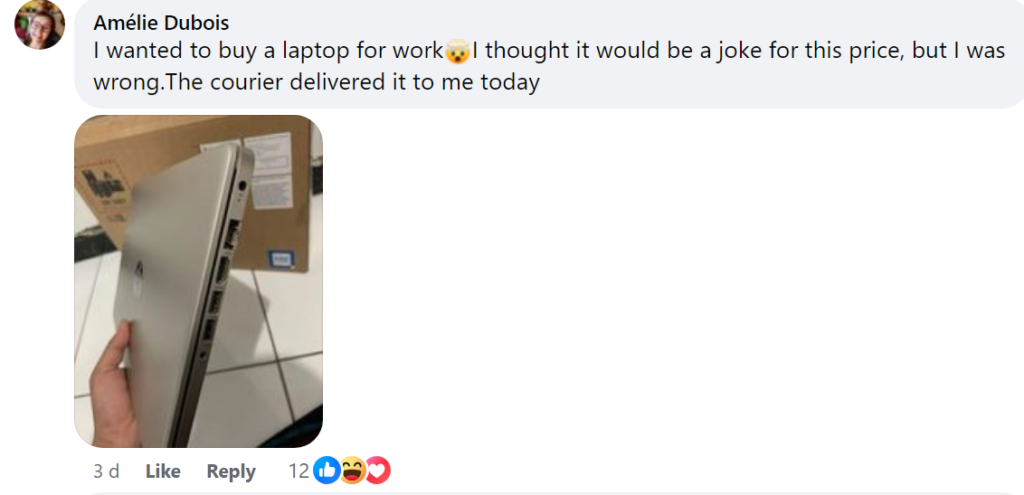
How does the scam work?
The adverts claim to have a limited number of devices available, urging potential customers to visit a fraudulent website bearing the Scan logo.
Once on the website, customers must answer a series of straightforward questions (“do you want to upgrade your laptop?”) and are guided to a mini-game where they are given three shots at picking out a laptop from one of the twelve gift boxes on the screen.
Regardless of which boxes you pick, you’ll be successful on your third attempt.

From there, users are taken to the payment page, where they are asked to fill in their personal details and, eventually, their credit card information, effectively opening the door to scammers to steal their money.
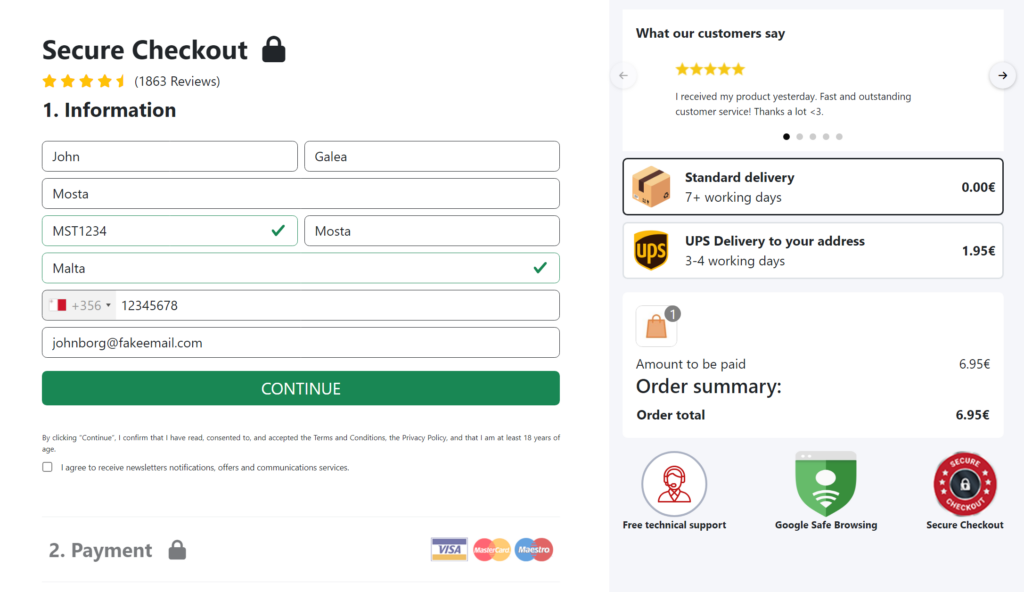
This scam is not new, even locally. Fellow electronics outlet Ultimate was the target of a similar campaign in the Spring, with adverts claiming to show the shop selling Smeg kettles for €2.
Scan receiving daily calls from worried customers
Scan operations director Stephen Scerri told Times of Malta that they have received countless calls about the scam over the past few days.
Although many of the callers were asking whether the offer was genuine, Scerri says that they also came across several people who fell victim to the scammers and were awaiting their products.
The calls prompted Scan to report the matter to the police and post warnings on their social media pages.
“Unfortunately, we’re very limited in what we can do,” Scerri said, urging anyone who comes across the scam to report the pages to Facebook in the hope that the social media platform acts to shut them down.
“In truth, when one page shuts down, another opens, so it’s difficult to keep up,” he says, recalling an incident when Scan was the subject of a similar scam several months ago.
Verdict
Adverts showing Scan selling various electronic devices at cutthroat prices are just the latest in a long line of scams to hit Maltese social media.
Similar scams crop up from time to time, often targeting a different shop. Although the shops and products being advertised change, the scam is invariably after one thing – your money.
This claim is therefore false, as the evidence clearly refutes the claim.
The Times of Malta fact-checking service forms part of the Mediterranean Digital Media Observatory (MedDMO) and the European Digital Media Observatory (EDMO), an independent observatory with hubs across all 27 EU member states that is funded by the EU’s Digital Europe programme. Fact-checks are based on our code of principles.
Let us know what you would like us to fact-check, understand our ratings system or see our answers to Frequently Asked Questions about the service.
